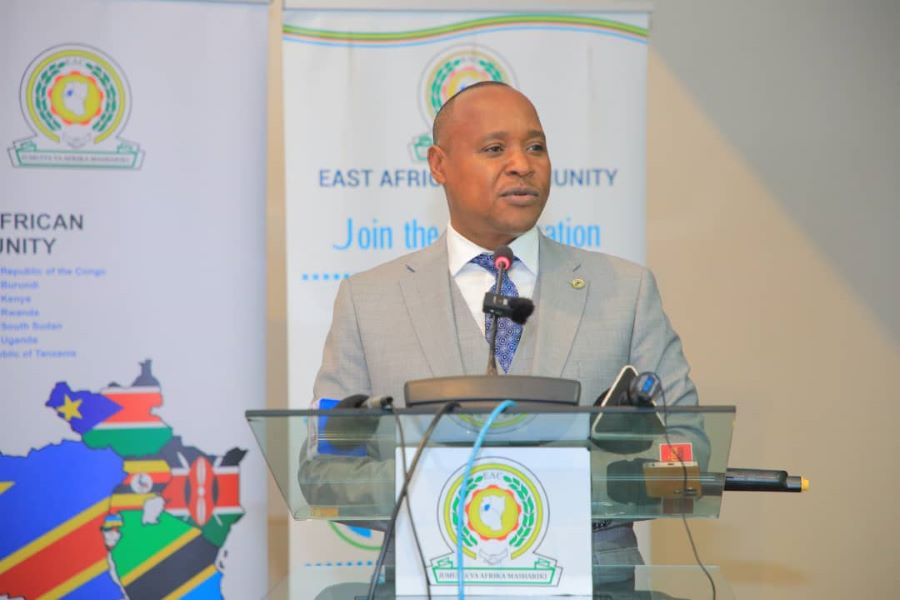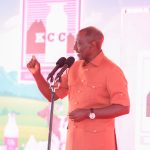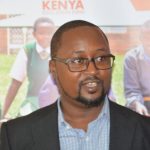The East African Community (EAC) is gearing up for the New Year with a stronger focus on fostering intra-regional trade, resource mobilisation and integrating the newest Partner States.
EAC Secretary General, Dr. Peter Mathuki, highlighted the need to enhance intra-regional trade by optimising the implementation of the EAC Customs Union and Common Market protocols.
Dr. Mathuki further emphasised the need to work together to eliminate Non-Tariff Barriers (NTBs) hindering intra-regional trade and expressed optimism about increasing intra-regional trade in East Africa to at least 40% over the next five years.
The Secretary General made the remarks during the EAC New Year Address to staff in the EAC Organs and Institutions from the EAC Headquarters in Arusha, Tanzania.
Dr. Mathuki revealed the ongoing efforts to integrate the Federal Republic of Somalia into the EAC, adding that Somalia had signed the Treaty of Accession into the EAC in 2023 and affirmed that the Community is looking forward to Somalia’s full integration after completing its internal processes.
“We look forward to the Federal Republic of Somalia depositing the instruments of ratification into the Community after completing their internal processes,” he said.
Dr. Mathuki reaffirmed the region’s commitment to implementing the four-band Common External Tariff (CET) to enhance trade competitiveness and boost the industrial sector.
“The region adopted a four-band structure of 0%, 10%, 25% and 30%/35%. We endeavour to continue with its implementation to facilitate trade competitiveness and promote the industrial sector in the region,” he added.
On the EAC Political Confederation, Dr. Mathuki said that as per the directive of the 23rd Ordinary Summit of the EAC Heads of State, the EAC will this year work with the United Republic of Tanzania, the Republic of South Sudan, the Republic of Rwanda and the Democratic Republic of the Congo to expedite the consultations.
“The experts are expected to deliver a report on the proposed model for the EAC Political Confederation and draft the EAC Political Confederation Constitution as a transitional model to the Political Federation,” he said.
The Secretary General commended EAC Partner States and development partners who actively supported the region’s peace support role in Eastern DRC.
“The forces made significant achievements and brought out our collective unity of strength in peace missions. As a bloc, regional peace is a priority and will continue scouting for mechanisms to contribute to peace and security initiatives in all Partner States.”
On the Summit’s directive on the Sustainable Financing Formula for the Community, agreeing on a 65% (Equal Contribution) and 35% (Assessed Contribution), Dr. Mathuki said that the EAC will work with all Partner States to expedite the operationalisation of the financing formula to maximize the Community’s performance.
“We are mulling on convening a Sectoral Council Meeting with Ministers in charge of Finance to discuss on implementing this directive as well as a strategy to rationalise the cost of doing business in the community,” he added.
The Secretary General further disclosed that the Community will prioritise revitalising relations with Development Partners, the Private Sector and the Civil Society, amongst other actors in the integration process.
The Secretary General also addressed the Summit’s adoption of French and Kiswahili as official languages, in addition to English. He confirmed the EAC’s commitment to developing language frameworks and policies for the operationalisation of these languages.
Speaking at the forum, the Judge President of the East African Court of Justice, Justice Nestor Kayobera, welcomed all staff back to work and underscored the need for EAC Organs and Institutions to adhere to the provisions of the Treaty for the establishment of the EAC while executing their respective mandates.





